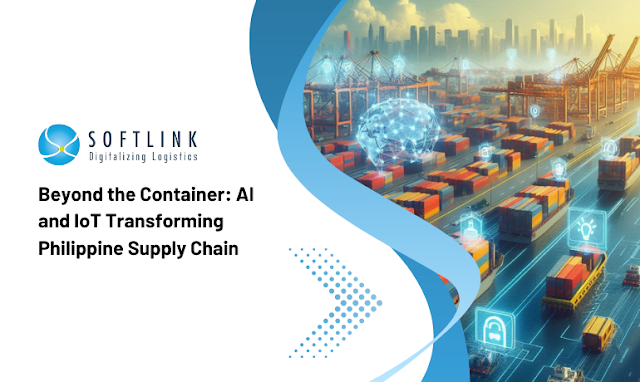Beyond Price: The New Paradigm in Freight Forwarding
The freight forwarding industry has always been a dynamic and evolving space, characterized by complex logistics and rapid adjustments to global changes. Recently, however, the industry has seen a sharp turn towards intense price competition, leading many companies to engage in a race to the bottom. While competitive pricing might appear advantageous at first, logistics experts caution that this approach may be too narrow in focus, potentially limiting the long-term growth and stability of freight forwarders. The Price Trap At first glance, co…
Climate Change: A Wake-Up Call for the Logistics Industry
As the global community grapples with the consequences of climate change, the logistics industry finds itself at a critical crossroads. With transportation accounting for 14% of global greenhouse gas emissions, and logistics playing a substantial role, the onus is on us to take meaningful action. While governments, businesses, and consumers are becoming more environmentally conscious, logistics needs to step up its game—not just to comply with regulations but to lead the charge toward a sustainable future. The urgency is evident. Cities like N…
Cutting Detention and Demurrage Costs with Logistics ERP Platforms
The logistics industry is grappling with the persistent challenge of detention and demurrage charges, affecting both profitability and operational efficiency. Today, more freight forwarders are turning to Intelligent Logistics ERP Solutions to manage costly detention and demurrage fees and streamline their operations. These charges, which accrue when cargo containers overstay their welcome at ports, terminals, or warehouses, are an unavoidable aspect of international shipping and often result from factors like port congestion, insufficient…
New Sea Port Developments in the Philippines: Why Forwarders Need Tech
Ongoing sea port expansions in the Philippines signal a pivotal shift in regional logistics, presenting a clear growth opportunity for forwarders who are prepared to leverage technology. With the country strategically positioned along major Asia-Pacific shipping routes, these new and upgraded ports are set to play a critical role in streamlining trade flows. But tapping into this potential requires more than just operational readiness—it demands a technological shift. Strategic Port Expansions Ports like Subic Bay and Batangas are undergoing s…
Navigating Supply Chain Disruptions Amid Geopolitical Tensions in Asia
Global supply chains have always been complex, requiring the seamless integration of resources, labor, and logistics across borders. These supply chains are vulnerable to disruptions caused by natural disasters, economic fluctuations, and technological shifts. The myriad geopolitical tensions in Asia are emerging as a dominant force in shaping supply chain dynamics. The region, home to manufacturing powerhouses like China, Vietnam, and the Philippines, has seen increasing instability due to territorial disputes, trade restrictions, and politic…
Major Airport Developments Signal a New Era of Technology-Driven Freight Forwarding
The Philippines is undergoing a significant shift in its logistics and transportation infrastructure, with major airport developments set to play a pivotal role in shaping the future of trade and freight forwarding. One of the most noteworthy projects is the New Manila International Airport (Bulacan Airport), a $15 billion project spearheaded by San Miguel Corporation (SMC). Once completed, this world-class facility will increase the country’s capacity to handle both passenger and cargo traffic, positioning the Philippines as a crucial hub for…
Lessons from Microsoft’s Outage: Preparing Your Business for Cyberattacks
In the digital age, businesses are increasingly reliant on cloud services and digital platforms for their operations. While these technologies offer numerous benefits, they also introduce new vulnerabilities. The recent Microsoft outage , caused by a Distributed Denial-of-Service (DDoS) attack, serves as a stark reminder of the potential risks associated with our interconnected world. This article delves into the lessons learned from this incident and provides practical steps that businesses, especially in the Philippines, can take to prepar…
Embracing VR and AR for Next-Gen Logistics Training in the Philippines
As the Philippine logistics sector continues to evolve in our increasingly digital world, innovative training methods are emerging on the horizon. Virtual Reality (VR) and Augmented Reality ( AR ) technologies, while still in their early stages in the country, hold immense potential to revolutionize how we prepare the next generation of logistics professionals. This article explores the possibilities these technologies offer, their potential impact on the Philippine freight forwarding and logistics industry, and the challenges we may face in i…
Beyond the Container: AI and IoT Transforming Philippine Supply Chain
The Philippine logistics sector is on the cusp of a technological revolution, with artificial intelligence (AI) and the Internet of Things (IoT) poised to reshape supply chain operations across the archipelago. As a nation comprised of over 7,600 islands, the Philippines faces unique logistical challenges that these emerging technologies are particularly well-suited to address. The Philippine logistics industry has been growing steadily, with the government’s “Build, Build, Build” program improving infrastructure nationwide. However, the count…
Know About The author
schedule for demo
Popular Posts








.png)





Connect with us